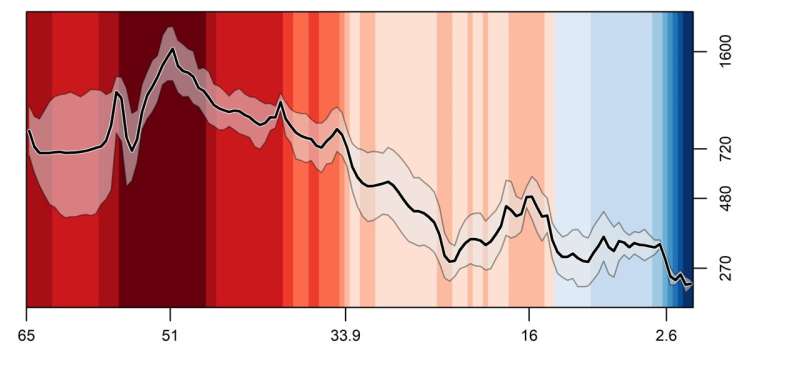
New analysis finds the last time the air contained 420 parts per million (ppm) of carbon dioxide was between 14-16 million years ago, when there was no ice in Greenland and the ancestors of humans were just transitioning from forests to grasslands.
“It really brings it home to us that what we are doing is very, very unusual in Earth’s history,” lead author Baerbel Hoenisch of the Columbia Climate School’s Lamont-Doherty Earth Observatory told AFP.
“What’s important is that Homo, our species, has only evolved 3 million years ago,” said Hoenisch.
Published in the journal Science, the paper covers the period from 66 million years ago until the present, analyzing biological and geochemical signatures from the deep past to reconstruct the historic CO2 record with greater precision than ever before.
Until the late 1700s, atmospheric carbon dioxide was about 280 ppm, meaning humans have already caused an increase of about 50 percent of the greenhouse gas, which traps heat in the atmosphere and has warmed the planet by 1.2 degrees Celsius compared to before industrialization.
If global CO2 emissions continue to rise we could reach between 600—800 ppm by the year 2100.
Those levels were last seen during the Eocene, 30-40 million years ago, before Antarctica was covered in ice and when the world’s flora and fauna looked vastly different—for example huge insects still roamed the Earth.
The researchers confirmed that the hottest period over the past 66 million years happened 50 million years ago, when CO2 spiked to as much as 1,600 ppm and temperatures were 12˚C hotter, before a long decline set in.
By 2.5 million years ago, carbon dioxide was 270-280 ppm, ushering in a series of ice ages.
That remained the level when modern humans arrived 400,000 years ago and persisted until our species began burning fossil fuels at large scales.
The team estimates that a doubling of CO2 is predicted to warm the planet by 5-8 degrees Celsius—but over a long period, hundreds of thousands of years—when increased temperatures have rippling effects through Earth systems.
The carbon record reveals that 56 million years ago, Earth underwent a similar rapid release of carbon dioxide, which caused massive changes to ecosystems and took some 150,000 years to dissipate.